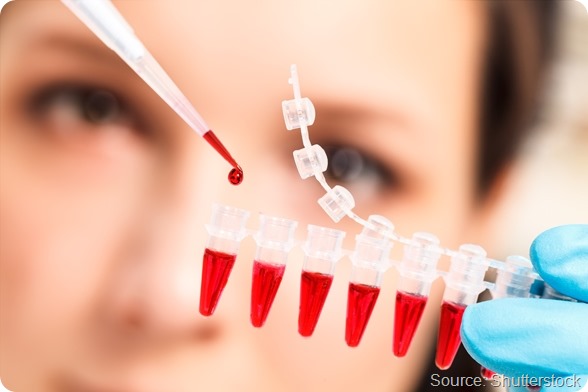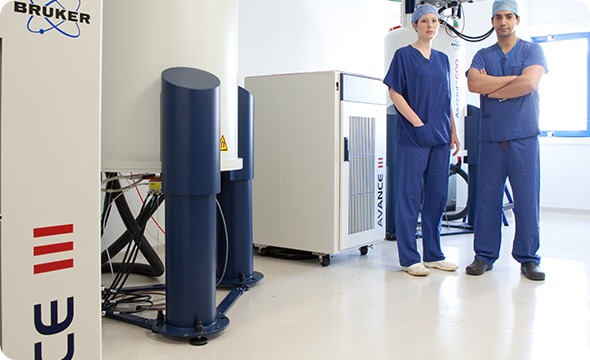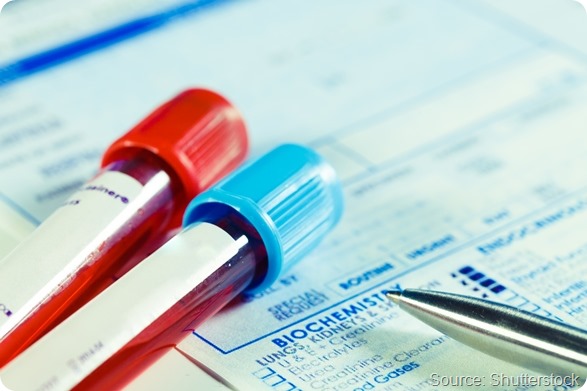Can you give a brief overview of the work you're presenting here at the Bruker Symposium at ENC today?
The work I've been presenting today is to draw attention to two sides of the same coin, personalized healthcare and population-based medicine, and how NMR spectroscopy can help towards identifying biomarkers, disease risk, and also hone down on mechanisms of disease.
I've given examples from surgery, from oncology, and also population studies on things like obesity, which are all growing problems in the West; this is how the technology can really support healthcare going forwards.
Could you outline the aims of the Phenome Center, and how you're exploring the effects of the environment on everybody's health?
The Phenome Center developed out of the Olympic drug testing facility, and we've adapted it so that we use NMR spectrometry, which we have three spectrometers, and mass spectrometry, to take blood and urine from hundreds and thousands of people and profile them to get a biochemical fingerprint of every person.
We then relate these to areas of disease risk: be it cardiovascular disease, Alzheimer's and so forth. A lot of these disease risks are affecting aging populations. The idea is to look at whether we can predict disease risk and if we can we do anything about it. Also how can we uncover mechanisms of disease?

How does that NMR complement the suite of tools that you use within your research?
Traditionally, our background in our group started in NMR spectroscopy. We've later developed a capability for mass spectrometry, and the two technologies are entirely complementary.
But as an NMR spectroscopist, it's still my favorite, and what we find is that the NMR is much more reproducible than mass spectrometry, and when we get samples into the laboratory, what we do is an initial screen using NMR spectroscopy. Now, this has the effect of identifying outliers, so anybody who has overt disease, if they've got something unusual nutritionally, for example, and we can identify samples that are not really good for continuing on to do profiling. It could be some sort of sample artifact, a bad handling of samples.
The NMR acts as a first screen to check the samples are clean, and then also, because it's so reproducible, we get very consistent disease-related signatures. It uncovers a lot of the metabolites that come, for example, from microbial metabolism, the amino acids and organic acids, sugars, all these sorts of molecules. It's very easy to get fingerprints with the NMR, so it's a very robust tool.
It may not be as sensitive, for example, as the mass spec techniques, which is why we run them in tandem, and we'll pick up things such as bile acids, hormones, with the mass spectrometry that we don't get from the NMR, but really it's essential as a first-pass analysis.

How important are long-term research collaborations with industry with partners such as Bruker?
We've had a partnership with Bruker for over twenty years. When I started my Ph.D., I collaborated with Bruker and we're still collaborating with them.
The main reason I think is because Bruker are very receptive to criticism. They want to work with you to develop a product, and there's a no-nonsense approach, so if something doesn't work, they're not going to try and sell you something. They'll work with you to break through the barriers that are hindering the research, and to push forward to the next generation of technology.
That, I think, is worth a lot more than having something that's flash, and slick, and push-button, because you can't progress with that, so it is a real, true partnership in that sense of the word.

When do you think these diagnostic tools will start to see more widespread adoption?
That's the $64 million question! In places, it's possible to adopt them right now, so we've already implemented the technology, for example, in St. Mary's Hospital. There are groups in China and Taiwan who have the scale of people passing through the hospital and the power to implement them immediately.
In the UK, in Europe, perhaps it's taking a little longer to get the surgeons and the medics on board, because the language spoken by analytical chemists versus surgeons and medics is very different, so we need to learn to understand each other.
There's a great appetite for doing the work, but it'll go more slowly, perhaps, than in places like China.
I'd envisage in about ten years, though, it will be possible to screen everybody as they come through a hospital - urine samples, plasma samples - and build up a profile going forwards.
What's your vision of the future and the new and enhanced applications in medicine?
I think the first stage, the first vision, is to roll the technology out across the UK, across Europe, and globally.
We've implemented the technology at St. Mary's Hospital in Paddington, and it's working very nicely, but now to get surgeons and medics to take this on and adopt it, and implement it in real time in hospitals is the first step.
Then, I think one area that works very well is the tumor diagnostics. The idea here would be to take the patient and, while the patient is in the operating theater, to be able to take an intact biopsy tissue, put it into magic angle spinning rotor, and run an NMR experiment, so we can tell from the tumor whether it's malignant or benign, and it will also correlate with the grade of disease by various clinical metrics.
The idea is not to replace histology but to augment it, to give the surgeon a bit more working information to make decisions.
NMR in Diagnostic Research